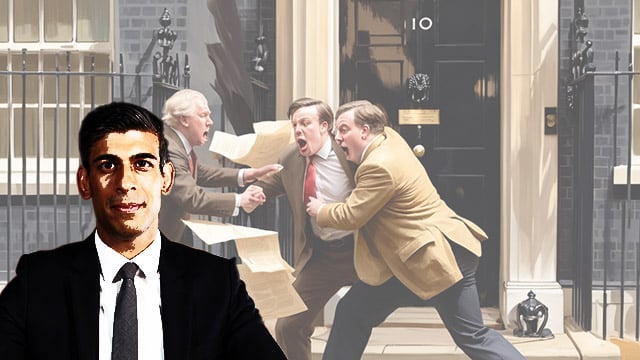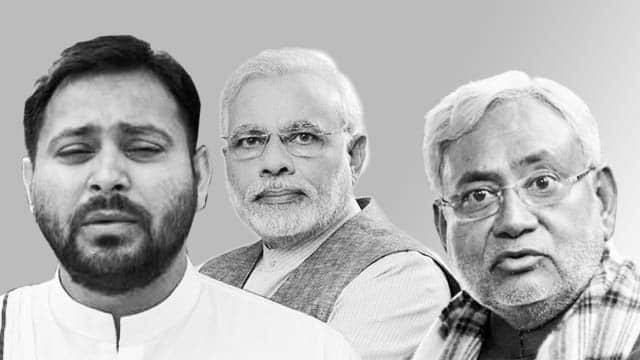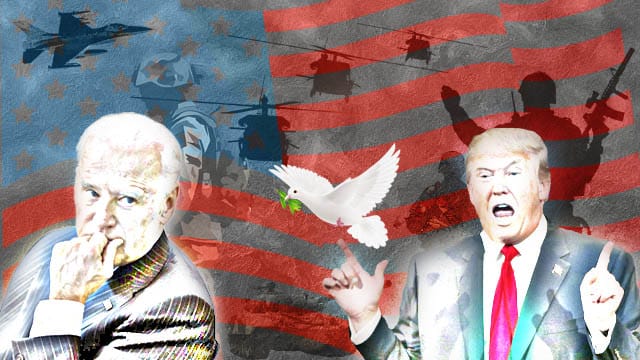British Prime Minister Rishi Sunak’s sudden announcement of a snap election on July 4th has caught national and international attention for over a week now, resulting in reactions ranging from “enthusiasm to outrage”. Mr Sunak’s snap election 2024 announcement has also polarised Britain and exposed the discontent raging among the youth against the Conservatives.
The opening move
The prime minister made the unexpected announcement in the pouring rain outside his Downing Street office in London on Wednesday, May 22nd, ending months of speculation.
If Mr Sunak’s snap election 2024 announcement plan falls through, Parliament will be prorogued on Friday, the new Parliament will be summoned on July 9th and state opening will take place on July 17th.
“I will place economic stability and confidence at the heart of this government’s agenda,” Mr Sunak had announced then, leveraging the morning’s inflation figures to promise a thriving economy, despite current polling predicting a Labour landslide.
Many saw the timing as strategic, aiming to leverage recent economic data. “Sunak is trying to present an economic recovery, despite high bank rates,” a Warwick University student told this correspondent on the condition of anonymity.
Mr Sunak’s snap election 2024 announcement and his speech, although long-awaited, largely caught Westminster by surprise.
Mr Sunak has faced challenges maintaining unity among his colleagues during five years of economic upheaval and party instability, with many expressing outrage at the sudden election announcement.
A group of “furious” Tory MPs are reportedly working on a plot to call off the upcoming General Election. More than 60 Conservative MPs have said they will stand down at the next general election, including former prime minister Theresa May.
One unnamed senior backbencher said: “This is utter madness. The Tory party is not ready, MPs are not ready…”
Political figures were equally stunned. Foreign Secretary David Cameron was called back from an overseas trip to Albania and Defence Secretary Grant Shapps was also forced to cancel plans.
Signs of an early election emerged earlier this month when Mr Sunak hinted at a lengthy campaign during his Policy Exchange speech focused on defence.
Seemingly aware of the impending announcement, Sir Keir Starmer, Leader of the Labour Party, also appeared prepared, holding a rally in Essex to unveil a six-point pledge card.
He responded by posting a video on social media saying: “It is time for change. Britain is a great and proud country. But under 14 years under the Tories, nothing seems to work anymore.”
Labour leader Keir Starmer says the election is the “moment the country’s been waiting for.”
The Players and their stakes
For the next six weeks, leading up to the election, Mr Sunak and Labour Party leader Sir Starmer will be like rival players in a high-stakes game—each striving to convince voters of their strengths and that the other is the wrong choice to steer Britain forward.
Mr Sunak has blocked veterans from using their IDs at polling stations, fearing it could “open the floodgates” to student voters, a cabinet minister revealed.
Veterans Minister Johnny Mercer, frustrated after “months without success,” said Mr Sunak’s advisers opposed the plan to prevent students from using their IDs, according to The Times.
Mr Sunak’s snap election 2024 announcement and his decision to control voter demographics have sparked a fierce backlash among younger voters.
Throughout his leadership, British youth have criticised his policies, most recently the controversial Rwanda £310m deportation scheme and his refusal to call for a ceasefire in Gaza.
Yesterday, Mr Sunak said the ICC seeking an arrest warrant for Israeli Prime Minister Benjamin Netanyahu is “deeply unhelpful”.
Emerging voices
Quotes from students reveal widespread disillusionment with both Mr Sunak and Sir Starmer in the upcoming election.
Criticising both major parties, a student remarked on the condition of anonymity, “The Tories have lost credibility, and Labour is equally polarising. This election is about choosing the lesser of two evils.” He anticipates a rise in support for independent candidates and smaller parties.
Syed Hussain, a PPE student, criticised Mr Sunak’s sudden snap election call. “This has thrown the Tory party into confusion; they were expecting a winter campaign,” he noted, pointing out the lack of prepared candidates.
Questioning Mr Sunak’s credibility amidst global turmoil, Mr Hussain referenced the ICC’s ruling on Netanyahu. “The public will doubt Sunak’s stance, given his support for controversial foreign policies.”
Moreover, he condemned the government’s moral integrity. “The public is tired of the government’s failures and divisive tactics, exemplified by ministers like Suella (Braverman) with her inflammatory remarks on minorities.”
Another Gen-Z voter, who also prefers to remain anonymous, expressed, “We cannot have another five years of this bleakness. I’m not a fan of the current Labour Party but by voting anything but or worse, not voting at all, we won’t get the Tories out.”
As Mr Sunak’s snap election 2024 approaches, the stakes are higher than ever, with both major parties under intense scrutiny. The outcome of this high-stakes game is uncertain, but one thing is clear: Britain’s youth and the nation at large are demanding change, and their votes will be pivotal in deciding the country’s future.
Aneesha is interested in journalism with a focus on climate and culture. She aims to use storytelling for change. She’s inspired by art history and South Asian fiction.



